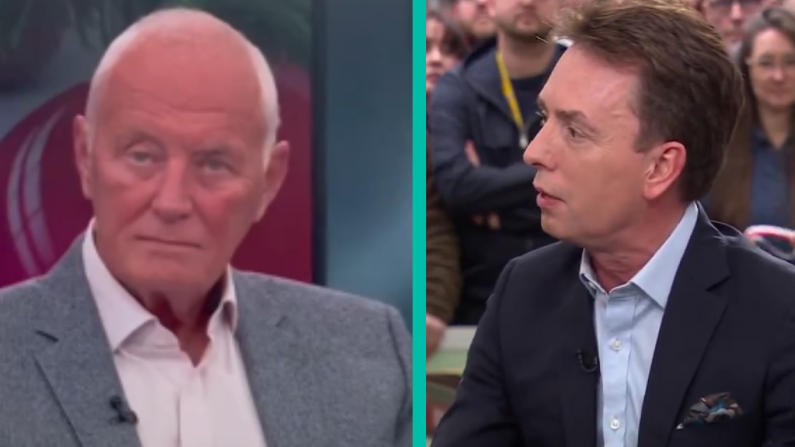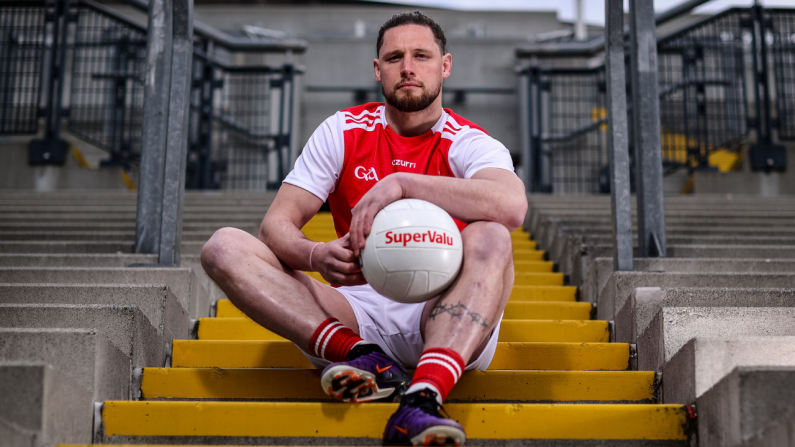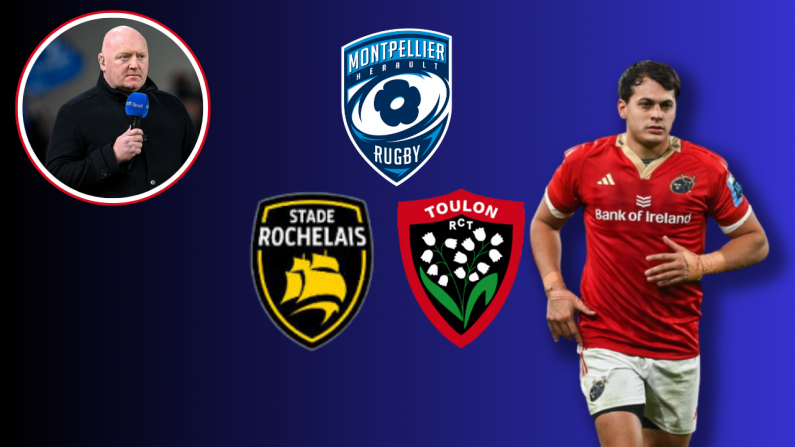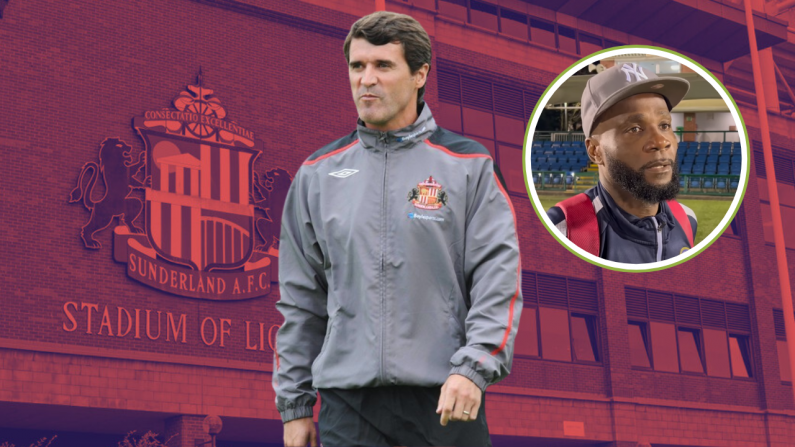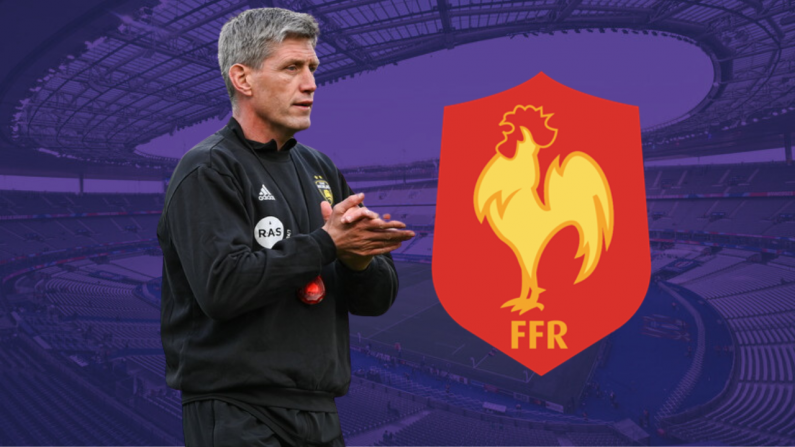Following Ireland's satisfying 1-0 win over Austria on Saturday, commentators began to wonder when was the last time we felt this joy against serious opposition away from home. It turns out we had to go back to March 1987 and Ireland's 1-0 win against Scotland in Hampden Park in a Euro '88 qualifier. Discarding the world rankings, this is the last time Ireland beat a fellow contender for qualification away from home in a competitive match.
In the meantime, Ireland have been reasonably competent at extracting three points from lower ranked but potentially tricky opposition away from home.
Whereas the likes of Scotland have routinely faltered - as we saw to our benefit in 2015 - Ireland have specialised in going to unglamorous places in Eastern Europe, countries that have only been playing football since the early 90s, and coming away with scratchy wins.
The purists invariably carp about said win. They go to great lengths to emphasise the uslessness of the opposition and conclude that Ireland are in trouble. Then, later on in the group, we see our rivals go to the same place and trip up. This has been the story of Ireland's successful qualifying campaigns in Euro 2012 and Euro 2016.
This is our away record against unfashionable opposition. Against top-end opposition or teams of an equivalent standard, we are of course renowned as the kings of the 1-1 draw. If drawing a match is indeed tantamount to kissing your sister, then Ireland are the most shamelessly incestuous nation on earth. This isn't restricted to away matches but is also true of major competition games, many of which have finished 1-1. Before Ireland played Sweden in Paris, journalist Mark Gallagher noted that there was feverish anticipation around the city ahead of the 1-1 draw.
Excitement building ahead of Ireland's 1-1 draw with Sweden.
— Mark Gallagher (@bailemg) June 13, 2016
For this reason, and also as a result of the injury plagued build-up, a draw was supposed to represent the summit of our expectations on Saturday.
So, when Julian Baumgartlingner (I want you to know how difficult it is not to write 'Felix Baumgartner' by accident when typing his name) arched and volleyed the ball back into the six yard box, we expected the hapless Janko to finally find his range and turn the ball into the net. That's how we've been conditioned to expect Ireland away matches to end.
Here are the big numbers. Since that win over Scotland in 1987, Ireland have played 77 away matches in qualifying. They have won 30 of them, drawn 28 and lost 19. Here's the tour through the years.
1987-1994 - Drawing with the best in the world
While wins over 'proper teams' were thin on the ground, Ireland's away performances during these heady days were always resilient. Between 1986 and 1994, Ireland lost only three qualifying matches and one of these was at home. Those defeats arrived in Sofia, right after the Hampden win, where the home team had a intimidating record. Another one came in Seville in November 1988. The 2-0 loss to Spain, we might charitably attribute to a post-Euro 88 hangover.
Aside from these missteps, the signature Irish away performance against group rivals was a draw on the scoreboard which was greeted as a moral victory and followed by a jubilant sing-song.
But in our post-match giddiness, we were selling ourselves short. Two of Ireland's most famous away performances of the era - in Wembley in '91 and Seville in '92 - should have resulted in victories.
After the draw in London in March 1991, John Motson noted that it was the Irish fans that were singing at the end. When Graham Taylor was interviewed by the TV interviewers, he looked pleased to be hit with the softball question, "why are they so hard to beat?" The questions might have centred around how lucky England were to avoid defeat.
Ireland's high-intensity panicked the English defence and midfield and the home team were on the rack praying for the final whistle at the end.
The 1-1 draw in Wembley was the signature game of the Jack Charlton reign, when the 'put them under pressure' maxim reached its fullest expression. And it of course gave us the three minutes which summed up the era.
There was the downside to our metronomic ability to accumulate draws on the road. Polish football was not in rude health in the late 80s and early 90s but they could still prove a pain in the neck for those with aspirations. Ireland would have justifiably fancied their chances in Poznan in late 1991.
They appeared to be sauntering to a 3-1 victory, a result which would have left them nearly certain of qualification for Euro 92 at England's expense. Most uncharasteristically, two goals were given away late on. Graham Taylor was given a reprieve though in the long run we probably didn't do him a favour by keeping him in the job.
1995-1999 - Trouble on the road
After the Charlton team's sudden but steep decline in the latter part of 1995, Mick McCarthy had to effectively start again with a largely new team, with the added difficulty of doing so in front of a public accustomed to success.
The media had already pressed the panic button long before Ireland's first away loss of the Euro 96 campaign in Vienna. A 0-0 defeat (not a mistake) in Liechtenstein and an alarming 3-1 loss at home to Austria made plain that things were about to take a turn for the worse, that our ageing team had reached the point of no return.
The Austria loss in September 1995 was Ireland's first competitive defeat away from home in just under seven years.
Having gone the first half of the 1990s without losing an away qualifier, Ireland thereafter lost games against Austria, Portugal, Romania, Macedonia, Belgium, Yugoslavia and Croatia.
In the early days of the McCarthy era, we relied on our home form to rescue us from our travails abroad. McCarthy only lost one competitive game at Lansdowne Road is his entire time as manager, the last match, at home to Switzerland.
The Euro 2000 campaign best sums up Ireland's difficulties. In a testing group, dominated by Eastern European sides, Ireland were flawless at home winning four from four. Away from home, our famed ability to wriggle out with a point deserted us badly as nil pois was accumulated from our big trips to Sarajevo and Zagreb.
While the loss in Macedonia in 1997 is the best remembered, it is the Croatia game which best encapsulates this miserable era on the road. Ireland adopted a monumnetally defeatist and Trapattoni-ist approach which consisted of sitting back and praying for a 0-0 draw.
The game itself mirrored the Russia game of 2011 in almost every particular, with the exception of the rather important detail that Croatia finally did score deep in injury time through Davor Suker.
2000-2002 - Drawing with the best in the world (Part 2)
The Chartlon era revisited. Our propensity for drawing with the best in the world and stuffing all the minnows makes a welcome return. Big Mick's team, which had been improving incrementally in the preceding years, finally comes of age.
Ireland's 2002 qualifying group was a heavily stratified affair, with three teams vying for two qualifying spots and three other also rans who served as mere cannon fodder for the contenders.
Initially, it looked like a rotten draw but Ireland had previously finished ahead of Holland in qualifying in 1982 and the Dutch have a history of phoning it in the qualifiers.
The first two games were in Amsterdam and Lisbon. In classic fashion, we took home two valuable draws which set us up nicely for later in the group.
There was some recrimination after the Holland game. Roy Keane, who revolted against the idea of scoffing cheese sandwiches before the game in Amsterdam, chose to regard it is two points lost, while his manager was inclined to look at the positives. This difference of opinion would be revisited after Saipan.
2002-2008 - Grim defeats and grimmer draws
Our unhappy post-Saipan era, an era of spiteful autobiograhies, an era of behind-the-scenes disputes, an era of former great players being recast as blundering buffoons, an era of entitled media outrage, and an era of grannies being killed off left, right and centre.
Our away record in the Kerr and Staunton eras was mediocre but was of a piece with our record in general. In three successive campaigns, we failed to even make it as far as a playoff.
The era began with an oddly surprising 4-2 defeat in Russia, the trigger for a resumption of the Saipan argument, which had been quietened during Ireland's time out in Japan.
This was billed as a division between those who believed that in Celtic Tiger Ireland the sky was the limit and that we badly needed to quit the charming eejitry and professionalise our operation and those who believed that the rough and ready approach had taken us very far and that we'd lose something intangible but vital if we changed now.
In reality it was largely a division between Irish Manchester United supporters and the rest of the country.
Brian Kerr lost one only competitive away match in his one and a half campaign long reign but it is for the regrettable draws that he is best remembered. The 2-0 loss in Switzerland possibly occurred because Ireland travelled to Basel, uncomfortable in the knowledge that we needed a win to stay alive.
In late '04, we gave a typically spirited and impressive performance in the Stade de France and Kerr looked like making fine music with these guys.
But the away result which best sums up the Kerr era was the 1-1 draw in Israel. The Israelis, we hasten to add, were not orignally even deemed 'contenders' but it became clear as the group progressed that everyone had trouble shaking them off. Like France and Switzerland they went through the group unbeaten. In games between the top foue, we were the only ones to lose a match, at home to France late on.
Lamentably, if rather unfortuitously, we finished behind Israel in the group. The draw in Tel Aviv was a metaphor for the Kerr era.
Yes, it was rotten luck, but fate had been tempted by 'defensivist' tactics.
In the quasi-comic Staunton era, it was away matches that provided us with the worst days. The competitive home record, if one is prepared to look past the 1-1 draw with Cyprus, was actually fine. It included decent wins in Wales and Slovakia in March (see, we are strong in March!)
The losses to Germany and Czech Republic were hardly unexpected though a more resilient and better primed Ireland team might have gotten a draw out of them at another time.
It is the Cyprus match, again against a non-contender, that the Staunton game is best remembered. And it is not a happy memory.
2009 - 2013 - Riding our luck
When it was asserted that Ireland haven't won a match away from home since Scotland 1987, many piped up that we did beat France over ninety minutes under Giovanni Trapattoni.
This is a legitimate asterisks to stick beside that stat. Though UEFA does apparently regard extra-time as being part of the same game as the original ninety minutes and thus records that match as a 1-1 draw.
It's strange to reckon that Saturday marked Ireland's first away win over a serious group rival in 29 years. One of the most striking aspects of the Trap era was that our away form was much superior to our home form.
In games against France, Italy, Bulgaria, Slovakia, Macedonia, and Sweden, our away display was more impressive and heartening than the home equivalent.
The respectability of the results notwithstanding, the Trap era is not fondly remembered by Irish fans. He only lost one competitive away game during his time in Ireland, in Vienna in September 2013 on the day before his resignation.
But the match which typifies the era is of course the Miracle in Moscow. In the years since, Irish fans have chosen only to remember Richard Dunne's performance as there was nothing else to feel proud of about that Ireland performance.
2014 - 2016
Despite Saturday's win, Martin O'Neill's away record is arguably a tad poorer than Trapattoni's. While hardly a cavalier type manager, he's prepared to tolerate more adventure than his pathologically pessmistic predecessor.
Ireland have suffered disappointing defeats in Scotland and Poland, the former being especially difficult to stomach and appearing to be the harbinger of grim times. Since then, they've shown more resolve and intelligence away from home, typified by a decent 1-1 draw in Bosnia and this historic win on Saturday.


